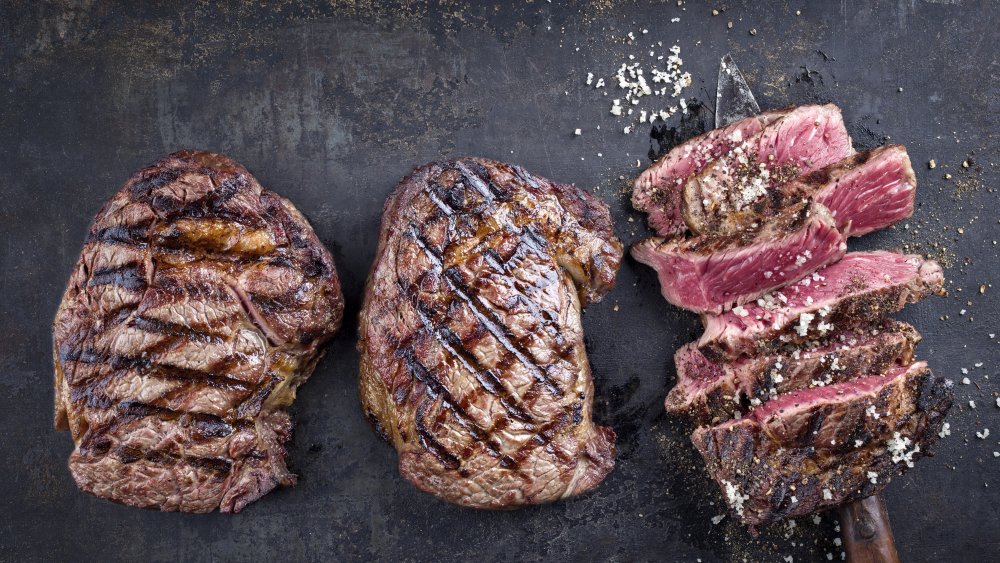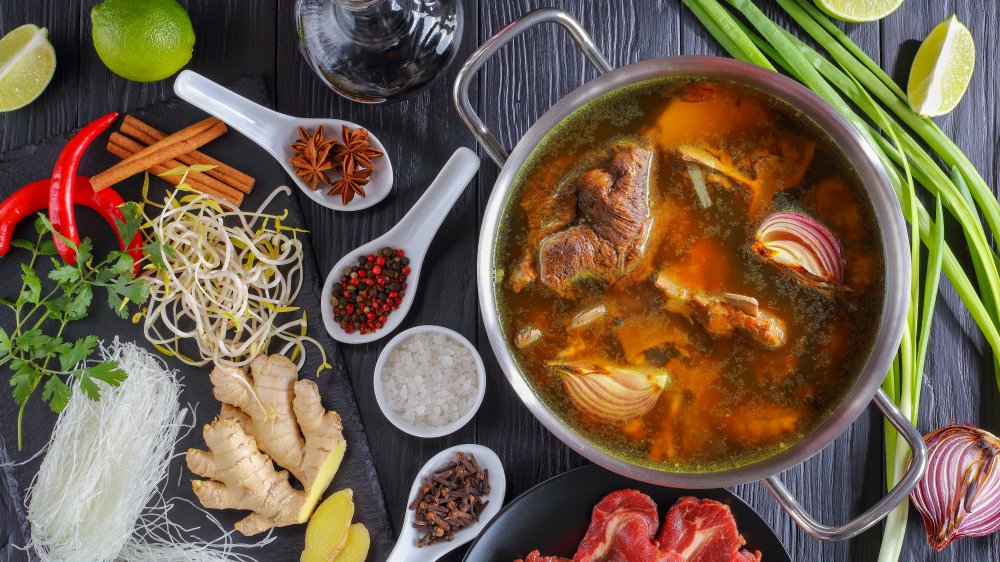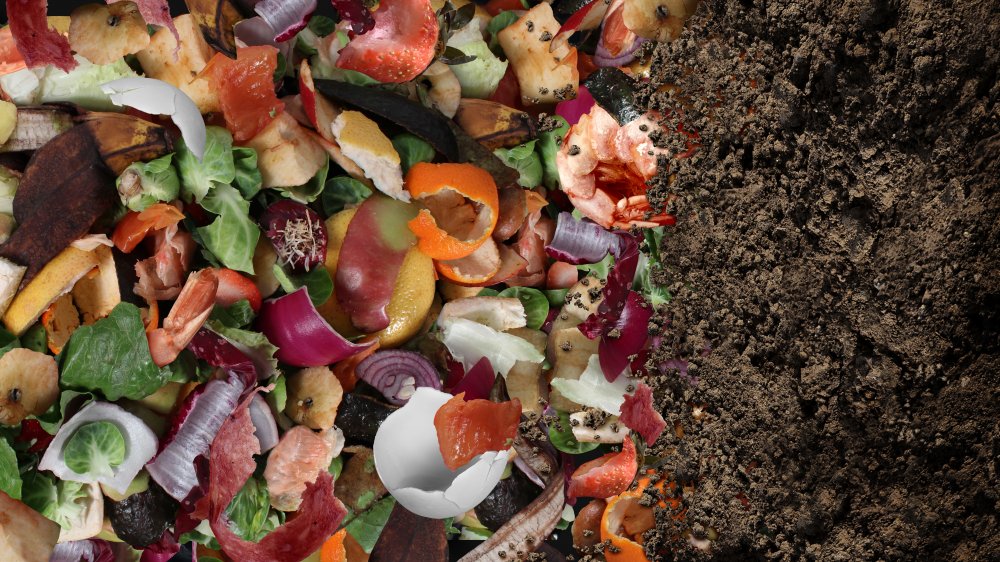You Should Never Put Meat Trimmings Down The Drain. Here's Why
You've just spent the last 20 minutes tirelessly tenderizing a slab of meat. You're ready to move on with your recipe — let's say you bought some pork, or snagged some veal — but you can't move on. The fatty, sinewy trimmings from the meat are just staring at you. Sure, the garbage disposal might seem like a natural option. After all, it's right there. Harmless, right?
Experts vehemently disagree. When Oregonian writer Carrie Sturrock called her local environmental bureau, its spokesperson cautioned everybody and anybody to stay away from the garbage disposal. Why? Meat contains fat, and fat, when chilled, begins to congeal. It's basically a pipe-clogging nightmare for all parties involved.
If you want to be a friend of the environment, and frankly, of your local sewage department, there are other options when it comes to utilizing the odds and ends of pork, beef, and whatever other meat you've grabbed from the butcher this week.
Take stock of your stock
Why are you throwing out your meat trimmings in the first place? Sure, if they're edging on green and rotten, we understand the urgency. But if they're still fresh, then you've got no business tossing them into the garbage— not yet, anyway. Meat trimmings can be a wonderful addition to homemade stock: toss them into a pot with roasted bones, water, onions, and some peppercorns, and you've got a whole new meal in the works. And get this: if you've just cut those trimmings from your chicken, steak, or pork shoulder, you can throw them in a bag and stick the whole thing into your freezer until you have enough to make a substantial broth. That's right: you're good to keep those babies for months (via The Spruce Eats).
Let's not forget that fat, especially animal fat, is a mouth-watering source of flavor. If you're wondering what to do with the fat you just trimmed, fry your potatoes in it. Cook eggs in it. Food writer and editor Kat Kinsman does both — and, she recommends saving the leftover animal fat in a jar, the way you'd store butter or olive oil (via Extra Crispy). There's a reason roasted duck fat potatoes are such a big deal these days: Fat makes things flavorful, dynamic, and honestly, your recipes become way more fun when you use it correctly (via The New York Times).
To compost, or not to compost?
But, even after you've used all the glorious trimmings from your duck breast or tri-tip steak, you still may find yourself stuck with the leathery, leftover tendons of the meat. It's tricky. You can technically compost the meat, but there's risk involved: namely, maggots, rats, and neighborhood cats, who apparently love steak as much as you do.
According to The Oregonian, it's best to compost any meat at least two feet below the ground, so that you don't attract any friends to your compost pile. However, it's still difficult to properly compost meat, particularly raw meat. According to Gardening Know How, composting raw meat may allow E. Coli to contaminate the soil if your compost doesn't hit the right temperature. Did you know E. Coli can live up to a couple years? Yeah. It's a much more dangerous game than your usual eggshells and coffee grounds, which, by the way, should always be tossed in your compost pile and never down the drain.
So if you're struck with those leftover trimmings, you can always throw them into the garbage can. Or, you can search for a local composting facility: You might be allowed to compost your meat there. The next time you're pondering those meat trimmings, check your local government's website to see if you can hand it off to professionals. In Portland, for example, meat is properly composted in commercial facilities, according to the city's website. We guess Portland is cool, after all.


